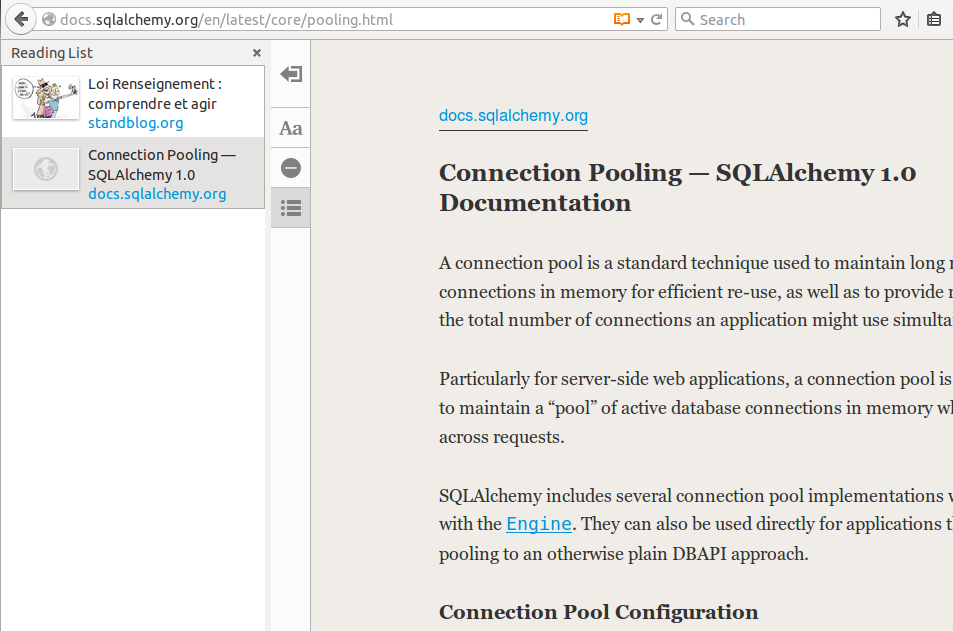A bunch of changes since the beginning of the year for the "cloud-services" frenchies!
First of all, two new recruits are here to complement the team: n1k0 and Mathieu are now helping out Tarek, Rémy and Alexis.
The starting of this year has seen the launch of Firefox Hello which allowed us to scale up the server, written in Node.js®.
A readinglist server
In parallel, a project about synchronizing reading lists (Reading List) started. The idea is to be able to bookmark pages to "read for later" and continue the reading on any synchronized device (Firefox for Android or Firefox Desktop). An open source counterpart to Pocket, in some regards, which is possible to host yourself.

To build this service, we could have reused Firefox sync , after all it's a robust synchronisation service, built on top of Cornice. But Sync hasn't been thought to guarantee strong data integrity and it was too complex to change that deeply.
We could also have created yet another application to expose an API and persist data in a database.
But, this little new team isn't here just by luck.
The «Daybed Team»
We share a vision: a generic data storage service! Maybe it brings to memories a certain project named Daybed?
For client applications, JavaScript or other, using this service should be as easy as a pie! The application handles its data locally (offline-first) and synchronizes upon request.
Here, the heart of the Reading List service is a "CRUD" API (Create, Retrieve, Update, Delete), which handles synchronisation and authentication. We made the bet to do a "simple" API, with the less specific code as possible, which would create the basis of a generic service. Also because it's likely that other similar projects will follow.
A bunch of experience was accumulated within the team, on one hand with the creation and evolution of Firefox Sync and on the other hand with Daybed our side-project. We try to not reproduce the same mistakes while keeping concepts which proved to be valid.
For instance, we kept the timestamp mechanism of Sync, which is used to synchronize collections. As these problematics are recurring or even impossible to avoid, we decided to build on top of this synchronization protocol and to dissociate it from the readinglist project.
The one-way mechanism
As a first stone to build the cathedral, we created Cliquet, which main idea is to have an implementation of this protocol in Python, while factorizing all our good practices (notably for putting everything in production).

The good thing with protocols (as opposed to monoliths) is that if you prefer Asyncio, io.js or Go, we will encourage you to publish your alternative implementation!
With Cliquet, the code of the readinglist service consists into defining a schema for the records and force some field values on certain calls. The size of the project is dramatically reduced to a dozen lines of code.
As to the future generic data storage service, the project just started but it really is! It can already be used as a storage backend in a Cliquet application, and this was implemented in only 20 lines of code.
Oh, and this time we will build features only from real use cases which are coming along the way. It might seem silly, but on Daybed we never made that point.
In future articles, we want to describe the good practices we put together in the protocol (or Cliquet), certain specific technical points and present our vision with examples and tutorials.
See you soon, then!